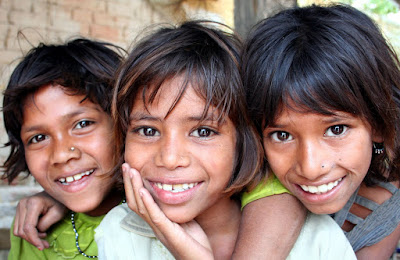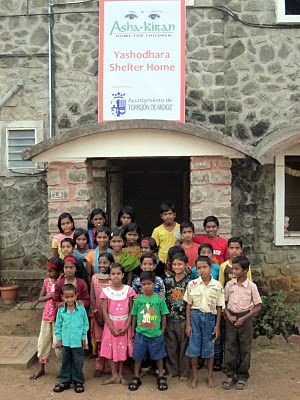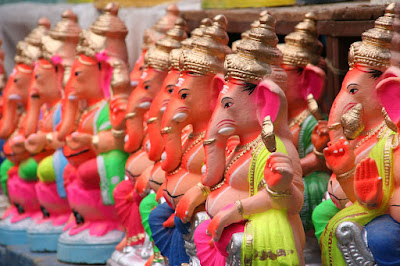
Summer is at its peak, touching 45 degrees in the afternoons in this part of the world. The fields all along the way are barren and the trees sparse as the sun blazes mercilessly above our heads.
Most villages on the way seem to have gone into a hiding behind mud walls, but Liya seems to have found life even in this scorching afternoon. Everybody is headed to the village primary school. The largest classroom of the village is filled to capacity with children, women and a few elders. Men are crowded outside the door and windows stretching to get a glimpse inside.
Amidst this anticipation and curiosity, young Neeta stands up to address the crowd. As she elaborates the findings of her children’s group on the condition of the school, involvement of the teachers, violence, places which scare her and her friends, most elders look at them patronizingly. However, this is where Neeta surprises them. She looks up at them and asks “what will you do about these problems? How will you help us?”
Silence envelopes the room; for a while no one has answers. And then a few parents wonder aloud what they can do about what is happening in the school. It is then that a young lady finally raises her voice and says “We will have to go to the school and talk to the teachers, and we will have to do this regularly; they should know that society is watching the school.” All this while, Neeta waits patiently for the elders to give their opinions and draw out a common action plan.
Even as the meeting begins to disperse after a couple of hours, a grandmother says that never in her life time has she seen such an event where children have led a meeting like this. The ball has been set rolling. One after the other, children stand up and raise issues of child labour, water, sanitation, environment, nutrition and health and give the elders a chance to voice their own opinions and action plans. The children insist on commitments from village leaders and villagers alike.
By the time the meeting was over at this school, the sun had turned into mellow gold, but the winds of change had started blowing.
Source: Child Rights for Change


































 A group of 11 people is taking shape in the community of Koregaon Park and two groups of 11 people each in the Hadapsar community. The people in these groups have welcomed the program as they realize it will enable them to be independent in their financial activities and improve their decision-making ability for the sustainable development of their families and communities.
A group of 11 people is taking shape in the community of Koregaon Park and two groups of 11 people each in the Hadapsar community. The people in these groups have welcomed the program as they realize it will enable them to be independent in their financial activities and improve their decision-making ability for the sustainable development of their families and communities. 





 We made the children aware of the danger posed by snakes through audiovisual support and a detailed explanation of the types of snakes and their characteristics, bites, how to tell by the bite if the snake is poisonous or harmless, and precautions to take to prevent snakes from nesting around the buildings on campus. They were also told about the time limit for treatment and that the campus hospital is well equipped to deal with snake bites.
We made the children aware of the danger posed by snakes through audiovisual support and a detailed explanation of the types of snakes and their characteristics, bites, how to tell by the bite if the snake is poisonous or harmless, and precautions to take to prevent snakes from nesting around the buildings on campus. They were also told about the time limit for treatment and that the campus hospital is well equipped to deal with snake bites.  Pragati and Pallavi used to live with their mother, blind in one eye, who worked in a telephone shop that was shut down by the police. Widowed since the girls were very young, her income suddenly stopped and the possibility of providing for her family was drastically reduced due to her impairment. The family lived on their neighbors’ charity, but the mother did not want her daughters to stop going to school. She contacted
Pragati and Pallavi used to live with their mother, blind in one eye, who worked in a telephone shop that was shut down by the police. Widowed since the girls were very young, her income suddenly stopped and the possibility of providing for her family was drastically reduced due to her impairment. The family lived on their neighbors’ charity, but the mother did not want her daughters to stop going to school. She contacted  Both mother and daughters are very grateful for the opportunity given to them. We will make our best effort to exceed their expectations.
Both mother and daughters are very grateful for the opportunity given to them. We will make our best effort to exceed their expectations.